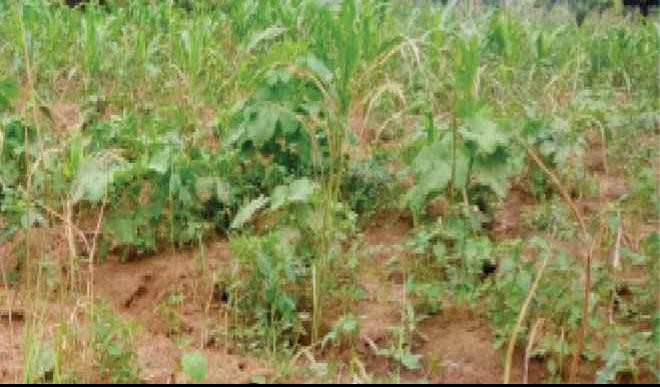
The United Nations Food and Agriculture Organisation (FAO) has developed a five year project known as `Fall Army-worm’ to control the spread of army-worm disease in Africa.
Mr Allan Hruska, the Principal Technical Coordinator of the project, told the News Agency of Nigeria (NAN) in Abuja on Thursday, that the task would involve training of agriculture stakeholders.
Hruska said the project would also involve both radio and television campaigns to educate farmers in 14 ECOWAS member countries, on possible measures to control the outbreak.
He noted that the FAO was reaching out to World Bank, United States Agency for International Development (USAID), Department for International Development (DFID) to raise funds for the project.
According to him, what we are doing is to help farmers understand the management options of this disease.
He said that educating farmers on disease management options would help boost production and guarantee food security.
“Army-worm is a new insect that came from America few years ago and it is now going all across Africa affecting millions of small holder maize producers across the continent including Nigeria.
“Farmers should not panic; they should not feel like this is the end of their maize production.
“We are trying to develop a five-year programme because we know that this pest is here to stay.
“It is going to be causing problems for many years and it is going to take a number of years to get these messages to farmers and other active members.
“We are looking for funding for the five year project. FAO is also looking to get some support to provide finances and money so that the campaigns can be carried out.
“Radio campaigns or village meetings can be organised. FAO is going to provide support in terms of personnel and a little bit of finance to make sure that the messages get in as soon as possible,’’ he said.
The coordinator suggested inter-cropping as the best natural method to tackle the spread of army-worm disease in Africa.
Hruska said that inter-cropping which involved planting different crops in a farmland, was an important way of attracting beneficial insects into the farm to kill 50 percent of the population of the army-worm larva.
He said that the use of pesticides to control the spread of army-worm, especially in maize would facilitate the elimination of beneficial insects in the farm and was also hazardous to health and the environment.
The coordinator appealed to the government to fund extension services to enable farmers gather adequate knowledge that would lead to food security in the sub-region.
“It is the farmers who need to be empowered, they need to understand these things because they are the ones who would take actions at the end of the day in their farms and this will help the country actualise the food security that they need,’’ Hruska said.
NAN reports that the African army-worm (Spodoptera exempta) also called okalombo or nutgrass army-worm is an African moth.
It is a very deleterious pest, capable of destroying entire crops in a matter of weeks.
The larvae feed on all types of grasses, early stages of cereal crops (e.g., corn, rice, wheat, millet, sorghum) sugar cane, and occasionally on coconut.
NAN report that army-worm disease has spread across no fewer than 26 states, ravaging maize farms in the affected states. (NAN)

 Join Daily Trust WhatsApp Community For Quick Access To News and Happenings Around You.
Join Daily Trust WhatsApp Community For Quick Access To News and Happenings Around You.


